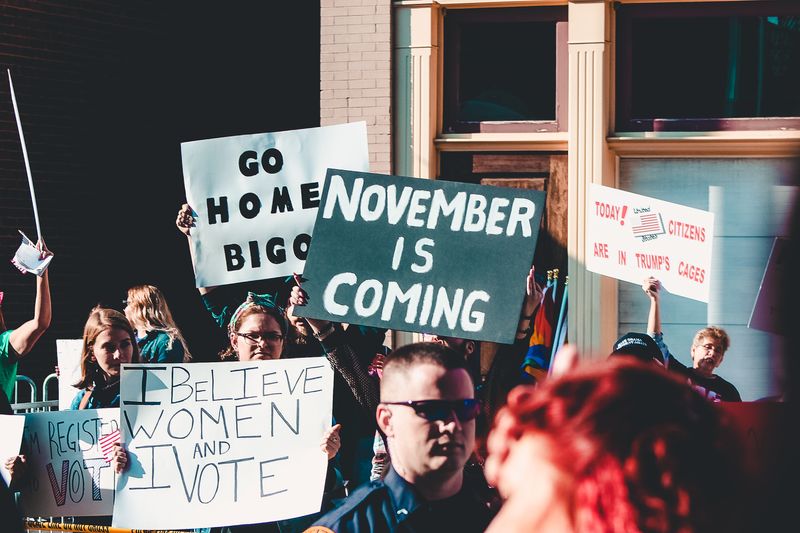Congress Mitch McConnell Vows to Serve His Full Term as Republican Leader
In recent days, concerns over the health and ability of Senate Minority Leader Mitch McConnell have intensified following a medical scare during a GOP news conference. McConnell’s sudden silence and freezing during the event has sparked renewed questions about age limits and the capacity of leaders in high-pressure positions.
The Age Question
At 81 years old, McConnell is currently the longest-serving Senate party leader in U.S. history. While he is not up for re-election to his Senate seat in Kentucky until 2026, concerns about his health have been raised after a series of incidents, including hospitalization with a concussion and rib fracture in March and a recent fall at a Washington, D.C., airport.
Although some GOP senators have personally witnessed changes in McConnell’s behavior following his concussion, they have publicly expressed their support and well-wishes. None of them, including his foes, have called on him to step aside due to his health issues.
Commitment and Re-Election
McConnell’s spokesperson has sought to quell speculation by affirming that the Senate Minority Leader plans to serve his full term, stating that McConnell appreciates the continued support of his colleagues and intends to fulfill the job they overwhelmingly elected him to do. However, beyond McConnell’s current term ending in early January 2025, the decision to re-elect him would ultimately lie with his colleagues.
Given McConnell’s status as a seasoned and influential political figure, his ability to serve effectively and make important decisions becomes crucial. Age and health can undoubtedly impact an individual’s cognitive and physical abilities, and it is reasonable to ask whether leaders in high-pressure positions should have age limits.
The Philosophical Discussion
The question of age limits for political leaders raises broader philosophical debates on the intersection of age, experience, and judgment in positions of power. On one hand, age can bring wisdom, experience, and a wealth of knowledge that may prove invaluable in critical decision-making processes.
However, age can also come with the deterioration of cognitive abilities, increased susceptibility to health issues, and a potential decline in adaptability and openness to new ideas. These factors may hinder a leader’s ability to effectively represent their constituents or make sound decisions in an ever-changing political landscape.
Moreover, the concept of age limits should be considered within the context of democratic principles. Allowing leaders to remain in power indefinitely, regardless of their age or health, may hinder democratic processes by preventing fresh voices and ideas from emerging.
Editorial: Striking a Balance
The question of age limits for political leaders is undoubtedly complex, requiring a delicate balance between respecting the experience and wisdom that comes with age and ensuring that leaders remain capable of effectively fulfilling their duties.
While it is vital to acknowledge McConnell’s accomplishments and contributions, it is also critical to consider the potential consequences of leaders remaining in power when their health and cognitive abilities may be compromised.
Perhaps a more nuanced and adaptable approach could be implemented, such as regular health assessments and mandatory retirement ages, accompanied by mechanisms to ensure a smooth transition of power and the nurturing of new talent within political parties.
Advice: Addressing the Issue
In light of the concerns surrounding Mitch McConnell’s health and capacity to lead effectively, McConnell himself should proactively address these concerns and provide a transparent and comprehensive explanation of his medical history, current health status, and the measures he is taking to ensure his fitness for the job.
Additionally, McConnell’s colleagues in Congress should consider openly discussing the issue, acknowledging the delicate balance between respecting McConnell’s achievements and ensuring that the needs of the country are met with capable and healthy leaders.
The question of age limits for political leaders must be addressed with thoughtful consideration of the principles of democracy and the importance of maintaining effective governance. Ultimately, the focus should be on how to ensure that leaders possess the necessary abilities to serve in high-pressure positions, rather than singling out individuals based solely on age.

<< photo by Nick Fewings >>
The image is for illustrative purposes only and does not depict the actual situation.
You might want to read !
- Mitch McConnell’s Interruption: Reflecting on a Politician’s Press Engagement
- Breaking the Freeze: Analyzing Mitch McConnell’s Media Mishap
- Sean Payton Speaks Out: Controversial Comments on Ex-Broncos Coach and Aaron Rodgers
- Saints’ Sean Payton Throws Shade at Nathaniel Hackett-Era Broncos, Promising Redemption at Super Bowl
- Is Joe Burrow’s Injury a Setback for the Bengals’ Season?
- Mets Shift Focus to Rebuilding: Selling Roster Pieces Begins with David Robertson Trade
- The Importance of Focus: DeVonta Smith’s Contract Extension Outlook
- “Shifting Strategies: Mets Trade David Robertson to Marlins in MLB Trade Deadline Deal”




